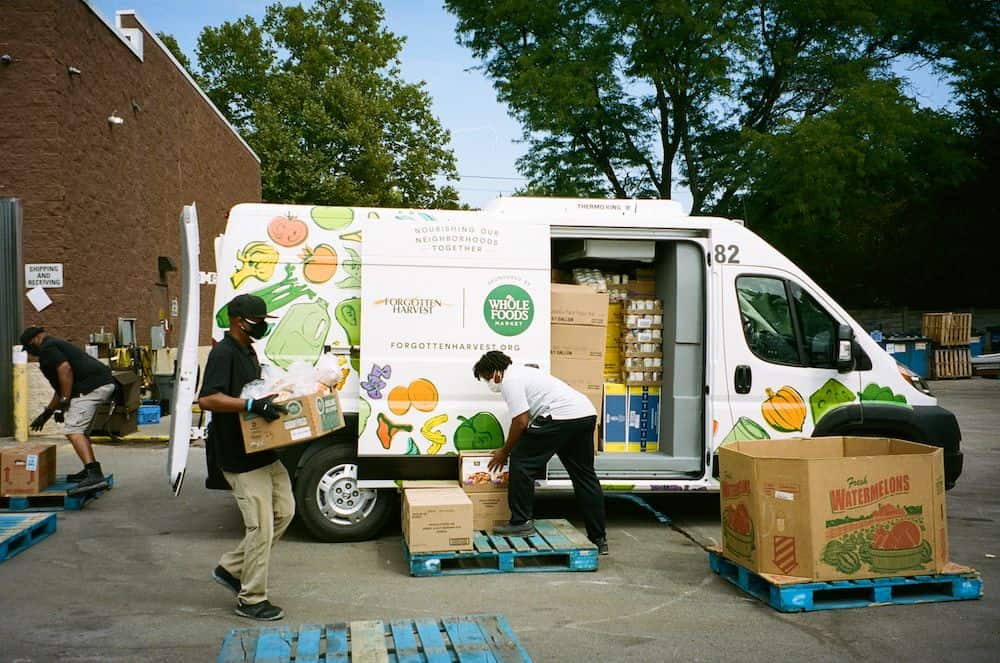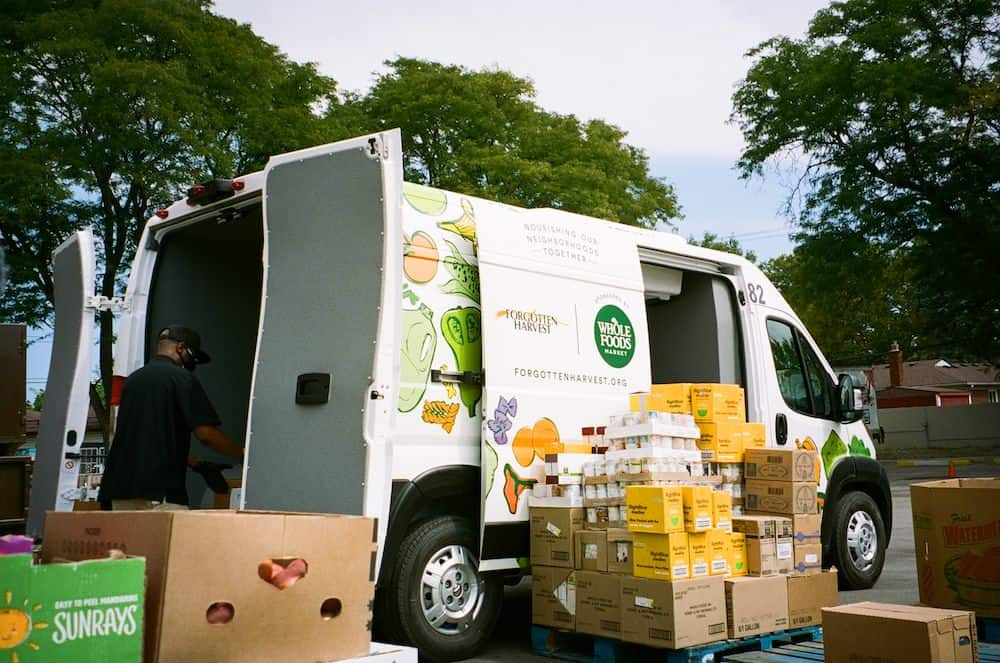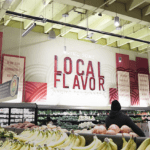We’ve Always Loved Local
Our commitment to local producers is nothing new – local growers, artisans, entrepreneurs and producers have been front and center for us since we opened our first store. From our Local Producer Loan Program to our expert team of Local Foragers, Whole Foods Market is committed to supporting a dynamic and vibrant local food system.
“What I’m motivated to do is to just build tolerance, and I think the best way to build tolerance is with familiarity. Food, for many people, is the easiest entry point to explore & learn
about other cultures.“
Jessamyn Waldman Rodriguez, Founder, Hot Bread Kitchen
What’s a Local Producer Loan Program?
Whole Story: So, Julia, let’s just start by having you tell us; who you are and what you do.
JULIA BELLO: Well, I’m Julia Bello! I’ve been a Whole Foods team member for over thirteen years. I actually started as a part-time cashier in the Baton Rouge store during college. And for the last two years, I’ve been on the business development team overseeing the Local Producer Loan Program(LPLP), which is a program aimed at supporting our local and emerging supplier communities by providing strategic, low-cost loans.
WS: And can you give us the quick history of the program? Because, I mean, it’s been around for a while, but I think it kind of flies under the radar for a lot of customers and probably even team members.
JB: Totally. 100%. LPLP was created in 2006 as a way to support local food systems and food artisans. The first loan was actually funded in 2007, and it went to a local honey supplier, Buzzn Bee, in the Florida region, who is still a supplier today, which is pretty awesome. Since then, we have funded over 360 loans and provided almost $26 million in capital.
WS: Why did Whole Foods start this program? What is the core philosophy behind it?
JB: Whole Foods has always been a champion of local suppliers and local farmers. And I think that as larger-scale organic operations and brands became more prevalent, especially in the early 2000s, it was important for Whole Foods to really double-down and show our commitment to supporting smaller producers in a deeper way that no one in the grocery industry was doing. To be able to offer strategic financing that might not otherwise be available to smaller suppliers is a really powerful tool in helping those businesses succeed and goes a long way in fostering meaningful relationships with our local suppliers, while also investing in our communities.
WS: And so, on a more personal note, why do you think it’s important to support local food companies like this?
JB: I think there’s a lot of reasons. First, Whole Foods is uniquely positioned to support local suppliers in this way. We intimately understand the challenges of the food industry and what it takes to operate in this space. And it’s just really, quite honestly, hard to be a small supplier in this industry. There’s a lot of competition with national brands. When we lend money to suppliers, they’re often getting so much more than capital. They’re getting a deeper partnership with a key retailer who understands the reality of being a food producer. Ultimately, they gain access to people and resources who are there to support them as they navigate the business.
This type of support is also important because we are investing in the people and the communities that we serve, and it ensures that those communities are represented on our shelves.
WS: I think the thing that’s always impressed me with the program throughout its many iterations over the years is the consistency with which borrowers talk about how important the relationship has been, alongside the money that they got from the loan.
JB: Absolutely. And that’s exactly why suppliers would come to us instead of a bank. We offer a strategic benefit in the financing equation.
WS: Why do you think that smaller, more local food production and producers are so important to the health and happiness of a community?
JB: Well, I think that the pandemic has certainly demonstrated why local food systems are so important; as national and global supply chains, early in the pandemic, were so strained, local producers were helping to keep people fed and helping their communities to be subsistent. Local producers are pillars of their community! They’re the friends, the neighbors, the families within the community. They provide job opportunities, and they keep more of the money circulating in their local economy, which is often reinvested back into the community through additional jobs, spending, and philanthropy. On top of that, local businesses help preserve the character and the sense of place that is unique and meaningful to a community.
WS: What is it that gets you up and excited to go to work? What do you love most about your job?
JB: I love how directly it ties into the Whole Foods mission, you know? I mean, that’s why I work at Whole Foods – the mission and being a part of raising the standards for food. It feels really good to be part of something that feels like it’s striving for better. There are just so many examples of where WFM has directly contributed to positive change – tuna standards, egg standards, organic standards, animal welfare standards, ingredient standards – all of these things Whole Foods has had a hand in. And so, I feel by coming to work every day, I’m supporting that work through the Local Producer Loan Program.
WS: So, what does the future look like for the program? Where do you want to take it from here?
JB: It’s a really exciting question and one that I think about almost daily to be honest. I think there’s just so much potential for LPLP. My hope is that, by sometime in early 2022, we’ll have developed a more coordinated, programmed approach to connecting our borrowers to training, resources, and access to a broader network of industry experts. Similar in approach to say, an accelerator.
Happy Dirt!
Some of Our Favorite Local Producers
Healthy Food Access
















